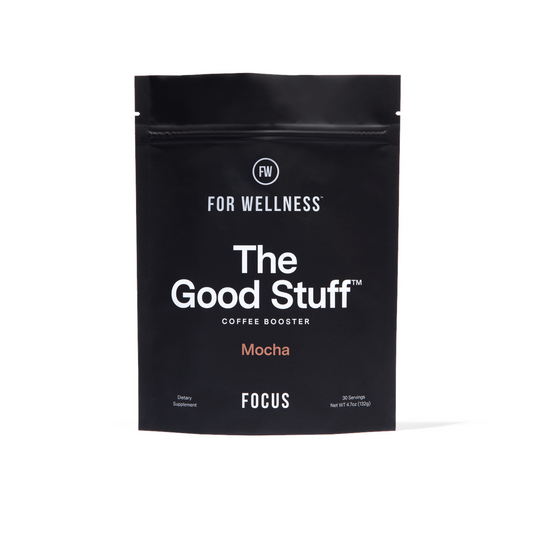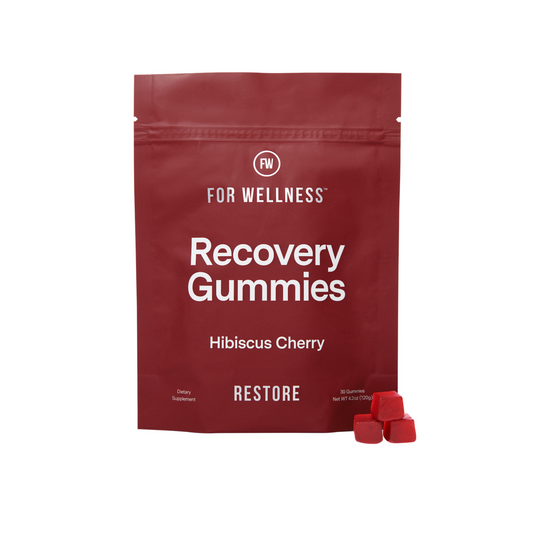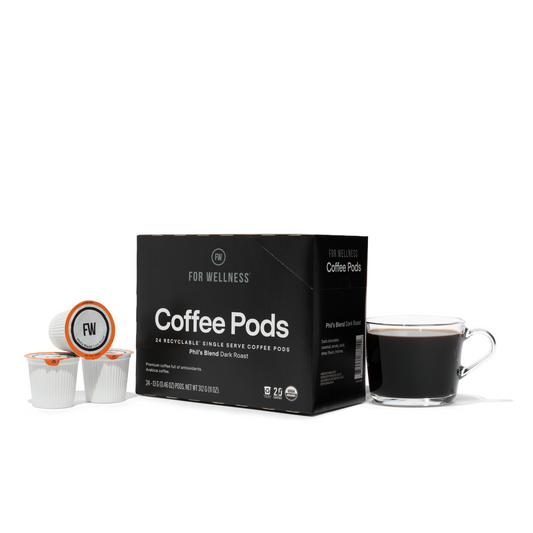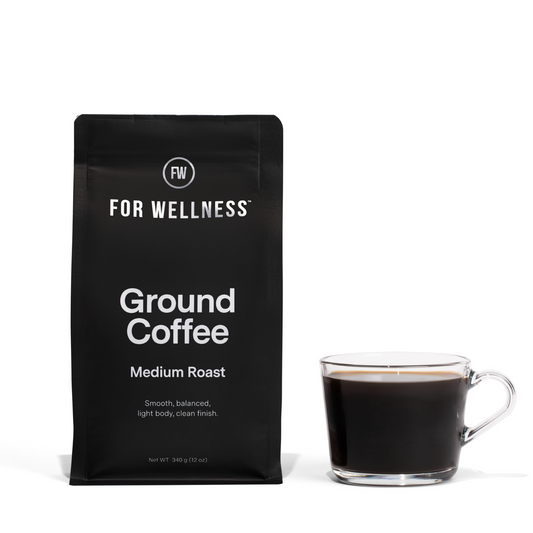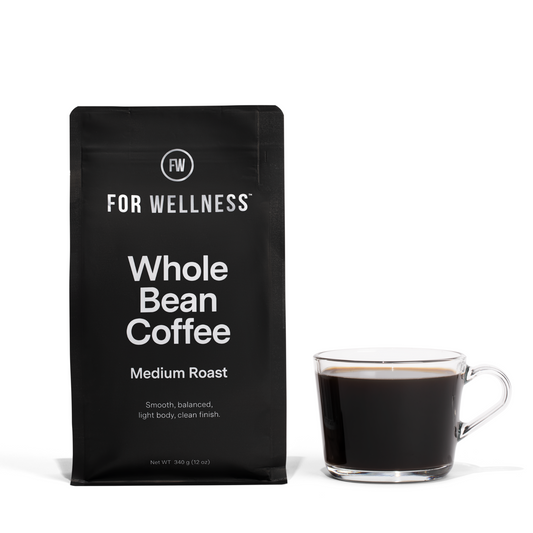Reaching peak fitness, getting a promotion, or finally buying that exciting new car are all commendable milestones, but there's a component to a happy life that is all too often overlooked: fulfillment.
Finding fulfillment - whether that's in a job we're passionate about, community involvement or personal passions - is vital to longevity and personal growth, although it can be fickle to reach.
That said, fulfillment is a goal worth having. Not only does purpose help you find happiness, but it's also closely linked to your health.
According to various studies, adding fulfillment to your holistic wellness routine can have significant long term health effects both for your mental and physical well-being.
The best part is, finding fulfillment doesn't have to cost a million dollars or force you to give up the things you love. It just takes time, practice, and a little introspection to get you on your way.
What Is Fulfillment?
Fulfillment is a word that gets thrown around a lot, but what does it really mean? According to researchers at the University of Zurich, fulfillment is "a cognitive-affective experience referring to a sense of wholeness, fit, and value toward the self, one's life, and one's impact."
Translation: Fulfillment is a feeling of being complete and valuable, both to yourself and others and of living a life that fits who you are.
It's not about chasing after some grand, elusive dream or reaching a specific milestone. It's more about living in alignment with your values and priorities, being of purpose, and honoring what truly matters to you and brings you joy. It's a journey—a continual process of discovery and growth.
Why Is Fulfillment Important?
Fulfillment is important to leading a satisfying, happy, and even healthy life. Here's how:
- Sense of Meaning and Purpose: Fulfillment gives life a sense of purpose and meaning. Feeling fulfilled makes you more likely to wake up each day with direction and motivation.
- Increased Happiness: Fulfillment is closely tied to happiness and good mental well-being. Living a meaningful and satisfying life makes you more likely to experience positive emotions and a greater sense of contentment.
- Improved Physical Health: Research has shown that fulfillment is associated with better physical health and longevity. (More on this shortly).
- Enhanced Relationships: Fulfillment can improve your relationships with others. When you're living a fulfilling life, you're likely to be more present and engaged in your interactions and have more to offer to those around you. This can lead to stronger connections and deeper bonds with friends, family, and community members.
How Does Fulfillment Relate to Longevity?
Fulfillment and longevity are more connected than you might think. Research has shown that individuals who report higher levels of fulfillment and life satisfaction tend to live longer, healthier lives.
Here are some studies illustrating this fascinating connection:
- A 2016 meta-analysis that reviewed studies involving 136,265 people found that possessing a high sense of purpose in life is associated with a 17 percent reduction in all-cause mortality and cardiovascular events.
- A 2022 study followed over 13,000 people for eight years. Researchers found that people with the highest purpose in life showed lower mortality risk than those with the lowest purpose. More specifically, mortality risk was 15.2% in the highest-purpose group and 36.5% in the lowest-purpose group. These results held regardless of gender, race, or ethnicity, with the effects being more pronounced among women.
- Another 2022 study found that viewing your life as fulfilled predicts good mental health.
Pretty interesting, right? But what accounts for this connection? Researchers are not entirely sure, but there are several theories or possible contributors:
- There's some evidence that your emotional state can affect your immune function. For example, a 2017 study found that higher activity in the amygdala (the brain's fear center) was associated with increased white blood cell production in bone marrow. This contributed to inflammation in the arteries, increasing the risk of heart disease. When you're feeling fulfilled, you'll likely also feel less stressed and calmer, potentially mitigating these adverse effects.
- High levels of cortisol from long-term stress can increase blood cholesterol, triglycerides, blood sugar, and blood pressure, which can contribute to heart disease and other chronic diseases.
- People who feel fulfilled are more likely to have better mental health, which can reduce life-threatening conditions like depression.
- Living an unfulfilled life might make you more likely to sleep poorly, make unhealthy food choices, or be less active. These lifestyle choices can increase mortality risk.
How to Live a More Fulfilled Life
The researchers from the University of Zurich came to the following conclusion about what supports living a fulfilling, meaningful life: "Overall, fulfillment stems from rewarding relationships, meaningful roles, and personally significant activities that allow for self-development and self-expression, but also from contributing to a cause beyond oneself."
So how can you add these activities to your life, or make the most of your existing opportunities?
#1: Find Your Why
First things first, take some time to identify what truly matters to you, and why.
The concept of "why" in personal development refers to uncovering your deeper sense of purpose, motivation, and core values. It's about understanding what truly inspires you and gives your life meaning, beyond just surface-level goals or external achievements.
Reflect on your values, passions, and aspirations. Some questions that might help you nail these things down include:
- What sparks joy in your life? Why?
- What makes you feel like you're making a difference? Why?
- What makes you feel fully alive? Why?
- What would you spend your time doing if you won the lottery? Why?
- What's something in the world you wish you could meaningfully change? Why?
- Rank what's most important in your life.
By understanding your core values, interests, and priorities, you can better align your actions and choices with what truly resonates with you.
#2: Set Meaningful Goals
Identify goals that align with your values and aspirations. These goals can be both short-term and long-term, ranging from personal development and career ambitions to relationships and leisure pursuits to volunteer and travel opportunities. Setting goals that are meaningful to you can give you a sense of purpose and direction.
Bear in mind your goals don't have to be too big! Some smaller steps could be volunteering once a month (or quarter), joining a community group, starting a street library, or finding time to donate spare clothes to the thrift store.
#3: Find Meaning at Work
A key aspect of fulfillment is finding meaning through work. In fact, in a 2023 study by Pew Research, 71 percent of adult American participants ranked having a job they enjoy as the most important factor for a fulfilling life. However, for various significant reasons (financials, location, opportunity), finding a fulfilling job can feel impossible.
If you dread going to work most days, consider whether you can make a change and what might be a better fit. Perhaps moving to a new role within your company would help you level up, or finding new elements of your role to expand on.
Alternatively, look at ways to work toward a career change with courses and education.
If none of those suggestions are feasible, that's fine too! In that case, looking for purpose outside the office is the way to go, so let's keep digging into that.
#4: Focus on Experiences Over Possessions
While new clothes and homewares can be exciting, this feeling is all too fleeting, and an unsustainable way of finding happiness.
Investing too much of oneself into material attachments can actually limit personal development and the range of meanings from which one can build their identity.
Experiences - whether that's time with loved ones, travel, volunteering, or taking classes - tend to make people happier than material possessions, as experiences are more closely tied to personal growth, relationships, and creating lasting memories.
It's also worth reframing your approach to your worldly goods. Research shows that "success materialism" (viewing wealth as a sign of success) is more positively linked to life satisfaction than "happiness materialism" (viewing wealth as a source of happiness).
#5: Cultivate Gratitude
Cultivate a mindset of gratitude by recognizing and appreciating the good things in your life. Take time each day to reflect on what you're grateful for, whether it's your health, relationships, opportunities, or simple pleasures. Gratitude can shift your perspective and enhance your overall sense of fulfillment.
#6: Practice Mindfulness
Incorporate mindfulness practices into your daily routine to cultivate greater presence and awareness. Mindfulness has been shown to reduce stress and anxiety, help you sleep better, and even lower blood pressure.
Some effective ways to cultivate mindfulness include meditation, deep breathing exercises, or simply focusing on what is right in front of you at any given moment.
#7: Nurture Relationships
According to the Pew Research study mentioned earlier, close friendships rank as the second most crucial factor in living a fulfilling life. Dedicate effort and time to fostering and cherishing meaningful connections with others. Surround yourself with friends and family who have your back, lift your spirits, and make you feel safe and content.
#8: Help Others
There's a Chinese saying that goes: "If you want happiness for an hour, take a nap. If you want happiness for a day, go fishing. If you want happiness for a year, inherit a fortune. If you want happiness for a lifetime, help somebody." For centuries, the greatest thinkers have echoed this: Happiness is found in helping others.
Turns out, this idea is backed by science, too. Research has found that altruism is hardwired in the brain — and it's pleasurable. Through fMRI technology, we can see that giving actually activates the same parts of the brain that are stimulated by food and sex. This supports the idea that helping others has been an important evolutionary adaptation for our species.
Find ways to contribute to the well-being of others and positively impact your community. Volunteering, mentoring, or supporting causes you believe in allows you to become part of something bigger than yourself. Bonus? You might make some good-natured friends!
#9: Embrace Growth and Resilience
We all make mistakes in life. Try to embrace challenges and setbacks as opportunities for growth and learning. Cultivate resilience by facing adversity with courage and perseverance. Remember that setbacks are a natural part of life's journey and can ultimately lead to greater strength and resilience.
Engaging in activities promoting personal growth often leads to a profound sense of fulfillment and contributes significantly to happiness.
#10: Care For Your Body
Good diet and exercise practices deliver an incredible sense of achievement and accomplishment. Not only that, the results: better fitness, fewer health troubles, higher self esteem, will help you engage in all the fulfilling activities we've covered in this post with more energy and stamina.
Whether you're substituting your coffee creamer for The Good Stuff™ or amping up your fitness routine with Recovery Gummies™, investing in your health and wellness is a worthy feat of self care.


Recovery Gummies - Restore
-
Supports muscle recovery and combats soreness.
-
Full of antioxidants and replenishes electrolytes
-
Boosts energy and focus with all-natural ingredients.
-
Tastes incredible with juicy cherry flavors.
A Final Word on Finding Fulfillment In Life
Embarking on the journey to a more fulfilling life begins with small steps outside your comfort zone, but each one carries the potential to lead to profound transformation. And remember, fulfillment is not a destination but a continual process of growth and discovery. So, take those steps confidently, knowing that each one brings you closer to living the vibrant, fulfilling, happy life you deserve.
Written by Katie Koschalk, a health and wellness writer, certified holistic nutritionist, and certified personal trainer based in California.



